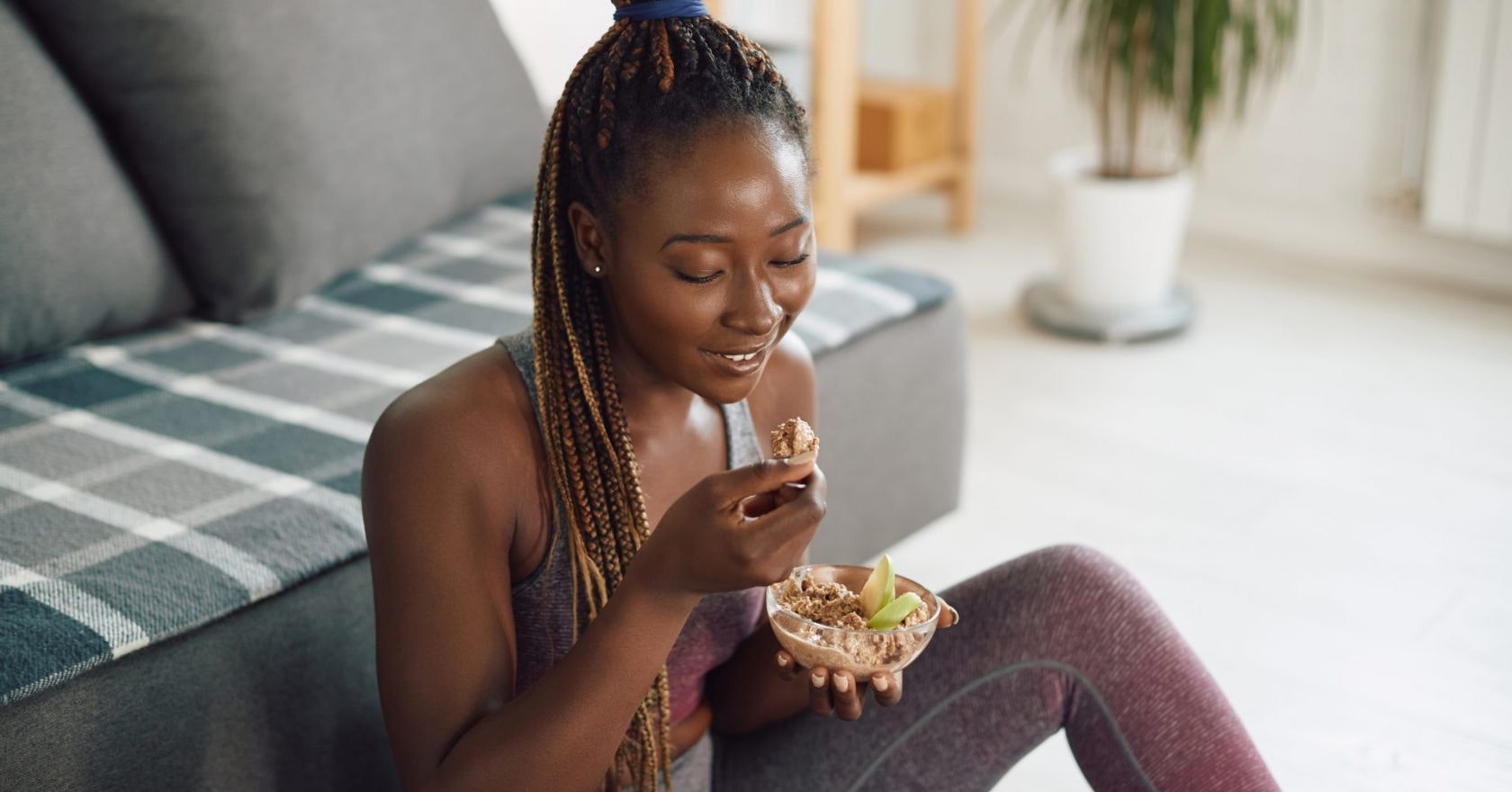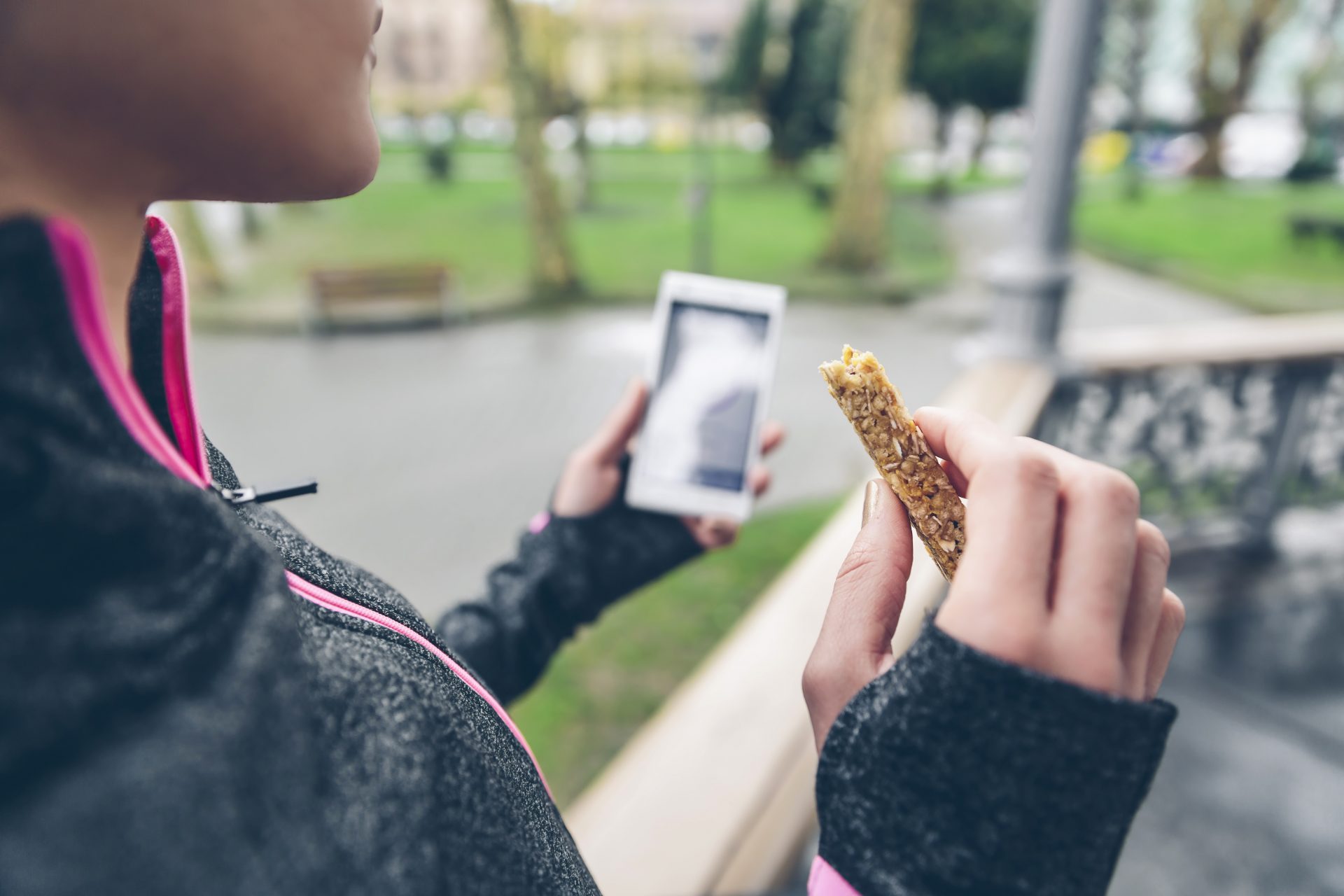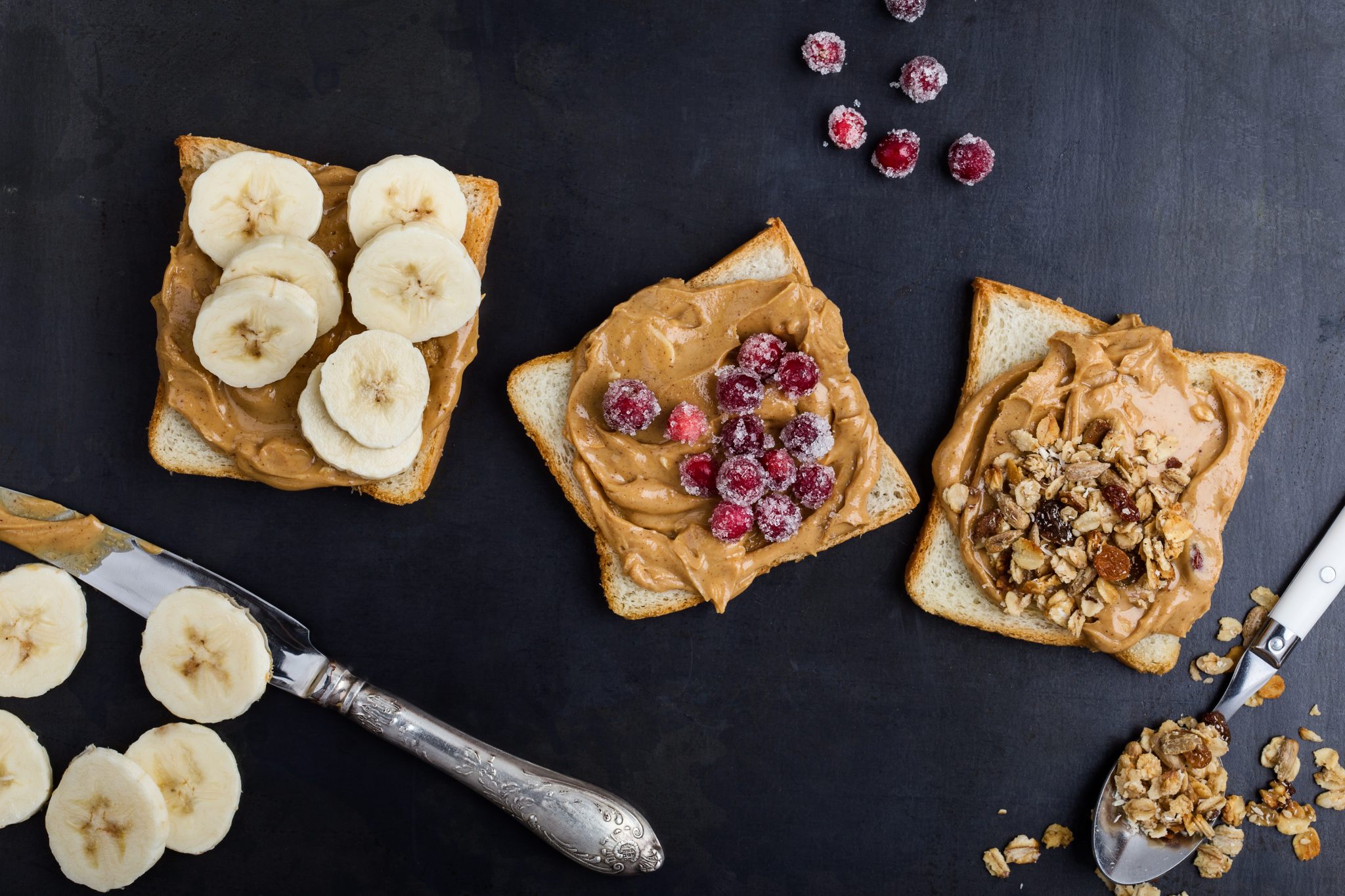
We all know that what eat has a huge impact on our capacity to exercise, but exactly when you fuel up is open to conjecture – something Strong Women contributor Meriam Ahari has been exploring.
At some point in our fitness journeys, most of us have wondered whether it’s better to eat before working out or to refuel afterwards. If we wake up early in the morning to run, we might not have the time or appetite to eat. Quite often, you don’t feel hungry immediately after a workout either.
We know that what we eat and the kind of fuel we put into our bodies affects how well we perform. But exactly how that fueling process works is open to debate. Is there such a thing as a “golden hour” – a concept that encourages refueling in the 60-minute window immediately following exercise when muscles are said to absorb nutrients more efficiently?
To get to the answers, we’ve been exploring the benefits of eating before and after a workout.
You may also like
What should you eat before strength training? Fitness trainers answer your most Googled questions
What happens when you eat before a workout?
Fueling ahead gives us more energy
It makes sense to fuel our bodies with food in order to persevere through a tough workout. Our main source of energy comes from carbohydrates (like vegetables, whole grains and legumes), which are broken down into glucose and stored in the muscles – giving us the stamina we need to get through strenuous exercises. When you forgo food, your body doesn’t have readily accessible energy, so it pulls from other sources such as muscle.
It protects metabolic speed
Interestingly enough, your body will burn the same amount of fat regardless of whether or not you eat before or after working out. However, regularly working out on an empty stomach can actually cause muscle loss and your metabolism to slow down. Not surprisingly, you’ll also lack the energy to get you through a vigorous workout.
If you decide to fuel up before your workout, Dr Sarah Davies, a musculoskeletal, sport and exercise medicine consultant at Chiswick Medical Centre, doesn’t suggest exercising on a heavy stomach. “Blood is diverted from your muscles to your stomach to help digest food. This is what leaves you feeling bloated, sluggish and lacking in motivation.”

Choose carbs and protein-rich snacks
When eating before a workout, choose meals that are high in complex carbs for energy (such as lentils, whole grains and starchy vegetables) and proteins that are easy to digest in order to prevent muscle damage (try nuts, a slice of turkey or a hard-boiled egg).
Proteins and carb-rich foods help the body perform for longer and at a higher intensity than when it’s hungry. Remember, you’ll be able to push harder if you have the energy to!
Wait 2-3 hours before exercising
Ideally, you should wait two to three hours before working out so your food is not still being digested. If you’ve just eaten a snack (like half an English muffin with peanut butter or a handful of granola), it’s best to wait 30 minutes to an hour before exercising.
You may also like
Running: not sure what to eat before a run? A sports nutritionist explains
What happens when you eat after a workout?
For some people, eating before exercise can make them feel sluggish, nauseous or cause stomach cramps. In this case, it’s OK to pass on eating before a workout if it prevents you from performing to your utmost ability.
Eating after is better for recovery
Plus, eating after a workout is great for recovery. Exercises, like lifting weights, create micro-tears in the muscles. When you rest, the body repairs itself, making muscles stronger than they were before. However, your muscles need protein in order to rebuild themselves and nourishing your body with vitamin-rich foods replaces the glycogen that you burned during your workout.

Which is better for fitness: eating before or after a workout?
So, is it more important to fuel our bodies before a workout so we can train hard or nourish them afterwards to aid in muscle recovery?
Scientifically, it’s not entirely necessary to eat before a workout because our bodies naturally store about 2,000 calories of glycogen (and even more in body fat) which give our bodies sufficient energy for physical exertion. But whether or not you have enough glycogen stored depends on what you’ve eaten previously and how many calories your workout will consume.
Different exercises require different fueling plans
After all, your body will respond differently to a pre-workout meal of oatmeal after yoga versus after training for a marathon. If you can exercise at maximum capacity on an empty stomach, go for it. But if you feel like you’re too weak, fatigued or light-headed, eat something beforehand.
Eating before and after has its benefits…
According to Fiit’s fitness programme manager Sean Kazab, the answer depends on whether you want to prioritise performance or recovery. “Carbohydrates before exercise have been shown to improve performance in both strength training and cardio. But if you want to maximise recovery also, you should eat both before and after training.”
You may also like
How much protein do you really need when strength training?
… but eating after exercise can be beneficial
While the necessity of pre-workout meals continues to be up for debate, all experts will agree that eating after exercising is beneficial. In fact, eating proteins and carbohydrates after a workout is essential for muscle recovery.
Loading up on these nutrients within an hour after exercise is ideal as your body is actively employing proteins to build new muscle and utilising carbs to restore depleted glycogen for future exercise. Think of it as your window to recovery and aim to eat 16-25 grams of protein to rebuild muscles.

However, it’s important to remember that when it comes to fitness, there’s no one-size-fits-all approach. It’s all about finding a way to successfully incorporate exercise and nutrition into your daily schedule. For some of us, that means working out first thing in the morning before heading to the office. Which also means that we might not have time to eat before a workout. Pay attention to how your body feels and performs during your workout, and nourish it in a way that best suits your needs.
Whatever you decide, dietitian Dr Carrie Ruxton from the Health and Food Supplements Information Service insists on drinking water before, during and after a workout. Staying hydrated will help you recover from any exercise, no matter the intensity.
You may also like
How to drink water during a workout
Best foods to eat before workouts
Carbs
A great rule of thumb: the closer you eat to your workout, the smaller and lighter your meal or snack should be. Carb-heavy foods (such as apples or oatmeal), digest slower than fats and proteins – so your blood sugar will remain steady and you’ll feel energised for longer.
If you’re feeling hungry, but only have 10-30 minutes until your workout, reach for an easily digestible snack such as almonds (high in protein and unsaturated fats) or a banana (a great source of potassium to prevent muscle cramps).
Protein
Proteins including eggs, skinless chicken breast and Greek yogurt improve muscle strength and aid in recovery without weighing you down.
Low saturated fat
Avoid foods that are high in fat (such as cheese) as they can slow down digestion and make stomach cramping worse.
Best foods to eat after workouts
High-fibre carbs
Since you’ve used up most of your glycogens during your workout, your meal should be high in complex carbohydrates that can be broken down slowly. Try high-fiber carbs such as whole grain wraps, brown rice or sweet potatoes to replace lost energy and keep blood sugar stable.
Protein
High-protein foods such as beans, tofu or cottage cheese will help muscles to rebuild and become even stronger.
Salt
Sweating also causes you to lose electrolytes, so hydrate with coconut water to replace minerals like sodium, potassium and magnesium (avoid sports drinks that tend to have absurd amounts of sugar in them). “Sports drinks are only needed after 90 minutes of exercise in hot weather – otherwise water is fine,” says Dr Ruxton.
Follow @StrongWomenUK on Instagram for the latest workouts, delicious recipes and motivation from your favourite fitness experts.
Image: Getty
Source: Read Full Article